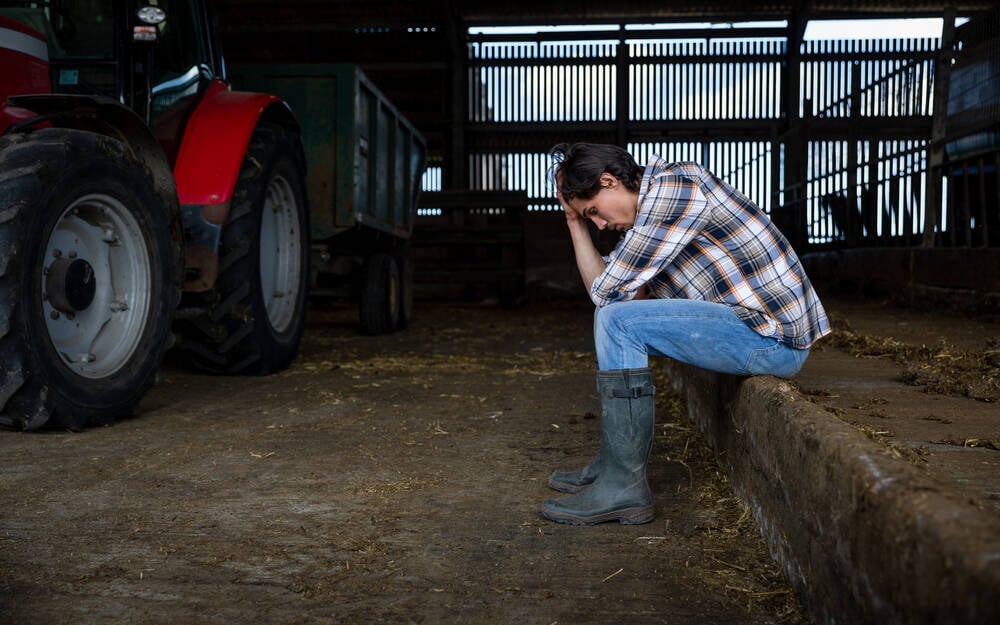Agriculture-specific mental health help targetted for farmers

The Canadian Centre for Agricultural Wellbeing wants to strengthen regional crisis liaisons for farmers.
Read Also

Food costs cut deep in consumer food report
The latest survey of Canadian grocery trends from Dalhousie University’s Agri-Food Analytics Lab habits shows prices are still affecting consumers’ grocery choices.
Briana Hagen, chief executive officer and the centre’s lead scientist, spoke at the Animal Health Canada annual forum in Ottawa last month.
Why it matters: Dealing with an infectious livestock disease can affect farmers’ mental health.
Research on the mental well-being of producers over the past 10 years “paints a bit of a concerning picture,” said Hagan.
Stress, anxiety, depression, emotional exhaustion and cynicism are all higher among farmers than the national average. Research out of the University of Guelph in 2022 noted particular declines in farmer mental health during the pandemic. One alarming statistic indicated that suicide ideation was twice as common in farmers than in the general population.
An emergency could make that bad situation worse.
“What happens when there’s this added stress?” Hagen said. “If African swine fever is here, then what happens?”
Many groups farmers deal with, like government or financial institutions, lack on-farm experience. This can create a barrier of trust, especially when institutions don’t understand the toll a crisis can have.
“There are agencies that can help intervene and logistically move farmers and their farms through this catastrophe,” Hagen said, “but what about the mental health impacts? What about a farmer’s loss of legacy, their identity, their livelihood?
“Given that the nature of farming is an all-encompassing one — occupational, lifestyle and identity — a crisis like ASF that has the potential to limit or even inhibit a farmer’s ability to farm will in turn then impact their ability to access their sense of meaning and purpose, which is essential to health and mental well-being.”
Hagen said this knowledge gap should be addressed in emergency preparedness, so her organization is developing a more formal mental health support structure for farmers.
The process involves designating a crisis liaison who can implement the strategy and create crisis teams and immediate contacts. These liaisons will partner with the ag community and commodity groups to strengthen responses in the case of an outbreak or other crisis.
“This is an evidence-based, proven program that helps improve knowledge, attitudes and interventional behaviors and enhances mental health literacy,” she said. “And it’s ag-specific, so it’s tailored to the farming community and people who work with farmers.”
Source: Farmtario.com

